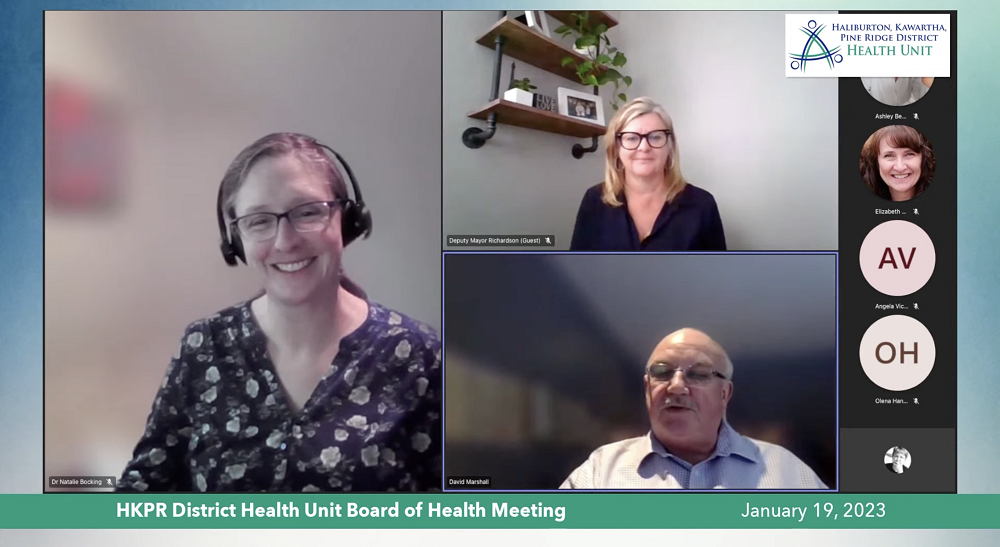Haliburton County’s highest ranking medical official says COVID-19 remains a “very real threat” moving into the new year.
Dr. Natalie Bocking, medical officer of health for the Haliburton, Kawartha, Pine Ridge (HKPR) district health unit, told a Jan. 19 meeting of her board that, despite seeing provincial and federal authorities abandon most COVID-19 safety measures last year, the virus was still present and likely would be for some time.
“Despite our best wishes, this thing is not over,” Bocking said. “It’s fair to expect continued emergence of new Omicron subvariants. Since January 2022, we have seen waves of new subvariants every three months or so. Omicron transmits so easily and so quickly, and has so many opportunities for mutation.”
The dominant strain emerging in North America is XBB1.5, accounting for around 70 per cent of reported cases across the northeastern U.S. over the holidays. Bocking said she expects to see an increase in infections locally come February, but that symptoms are mostly mild.
One concern, she said, is that these new variants are starting to adapt to some vaccines and medications. Recent tests found that Evusheld, a medication used to protect people with compromised immune systems from COVID, was not effective in combating XBB1.5.
“There continues to be new twists in the road. As each new subvariant arises, there may be something slightly different about it. Vaccines might not work as well, medications might not work as well, so people need to make sure they’re using other layers of protection,” Bocking said, encouraging people to wear masks when in crowded settings, and stay home when sick.
Reflecting on 2022, Bocking said that, statistically, it was the worst year of the pandemic for HKPR. There were 162 outbreaks across the region, with 340 hospital admissions and 120 deaths.
“In 2022, we saw 74 per cent of our total hospital admissions throughout the pandemic, and 77 per cent of all deaths, locally, that have been attributed to the virus,” Bocking said. “This is why I don’t think we can say COVID-19 is gone, is not influencing the health of our communities, or influencing the burden on our healthcare system.”
Looking at 2023, Bocking said the health unit will focus on four key priorities – adopting a new strategic plan to kick in in 2024; maintaining its COVID-19 response; addressing ongoing concerns, such as the increase in mental health issues and substance abuse; and chipping away at public health program backlogs, with the immediate focus on the region’s youth.
“It will take us years to catch up with our school-based immunization program. We also went multiple years without any oral health screenings in schools, so that needs to be a big focus,” Bocking said.
She also plans to consult with provincial officials to advocate for increased long-term funding.
“While we appreciate and need one-time funding for our COVID response, the fact it continues to be one-time, without any increase to our base, significantly impacts our ability to recruit employees to [manage our pandemic response],” Bocking said. “Knowing that COVID-19 is here to stay, we need to integrate it as part of our routine programs. We need to work towards funding this appropriately in the months and years ahead.”





